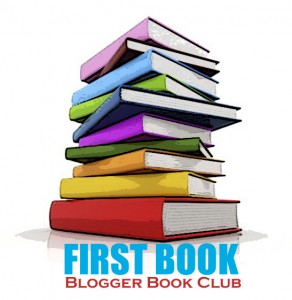We are both blogging this week about Frankie Landau-Banks, her history, and its lack of reputability. Emily posts about the book’s use of language today; come back tomorrow (or however we space them out) for Elizabeth’s take on the book’s feminism.
 Elizabeth had told me I would love THE DISREPUTABLE HISTORY OF FRANKIE LANDAU-BANKS, by E. Lockhart. Not just that it was a great book, but that I particularly would love it, and she couldn’t tell me why because that would ruin it, but trust her.
Elizabeth had told me I would love THE DISREPUTABLE HISTORY OF FRANKIE LANDAU-BANKS, by E. Lockhart. Not just that it was a great book, but that I particularly would love it, and she couldn’t tell me why because that would ruin it, but trust her.
So I was at Barnes and Noble soon after that and picked it up to read a few pages and see if it was worth buying, and I got to page 2 and burst out laughing at “It’s not for me to pugn or impugn their characters.” And then I finished reading Frankie’s letter to the headmaster and really couldn’t contain my glee at “gruntlement”, and I called Elizabeth and left a long voicemail, in which I definitely gave up on words a few times in favor of happy squeal noises, and said I didn’t know if this was what she meant as the reason I would particularly love this book (as it turned out it wasn’t), but it was incredible and if there was some other reason on top of it I couldn’t even fathom what a great book this would be.
And while there are many great things about TDHFLB, having read it fully twice what I genuinely love most, is the language, and that’s for a few reasons. One is just I like language and puns and silly words and silly usages of words, and did I say puns? So reading that Frankie does not want to pugn anybody’s character is endlessly amusing for me. On a deeper level, though, I think Lockhart does an incredible job of using Frankie’s language and thought patterns (which relate properly to each other in the way that they do in real people) to create her as a character. And while lots of books have characters with clear styles of speaking, or accents, or slang, that help put them in a time and place and form a piece of the character, I can’t think of another book where not just the way a character speaks, but the way she herself explicitly thinks about language are so key to understanding her personality.
It also helps that Frankie’s particular attitude towards language happens to be very similar to mine. I like to use language the way it ought to logically work, even when that’s not how it really works. I always get annoyed at the redundancy of the phrase “from whence”; and when no actual word in the English language signified the meaning I needed to express in my senior thesis, I made one up and used it throughout. I was telling a friend of mine about TDHFLB and the neglected positives and it was only once we were deep in argument that I realized we were having almost the exact conversation that Frankie and Matthew have:
“Mmmm,” she whispered. “Now I’m gruntled.”
“What?”
“Gruntled. I was disgruntled before.”
…
“And now, you’re…”
“Gruntled.”
She had expected Matthew’s face to light at the new word, but he touched her chin lightly and said, “I don’t think that word means what you think it means.”
…
“Gruntled means grumpy,” he said, walking over to the dictionary, which stood on a large stand.
…
“Why? Frankie was cross that he was being so literal. “That makes no sense, because if gruntled means grumbly, then disgruntled should mean un-grumbly.”
“Um…” Matthew scanned the dictionary. “Dis- can be an intensifier, as well as a negative.”
Frankie bounced on the couch. “I like my version better.”
EMILY: And the best thing is, she comes up with these neglected positives, like where there’s a word with a negative prefix but the positive version isn’t a word or doesn’t mean what it should. Like, there’s disgruntled, but there’s no gruntled. Hee! Gruntled!
ADAM: But that doesn’t really work, its not how the language evolved.
EMILY: But gruntled!
ADAM: We have different attitudes towards language. I don’t like made up words.
EMILY: Or ept! Like inept, ept.
ADAM: Yes. I’m glad you’re enjoying.
EMILY: But they’re such good made up words. And sometimes you have to make up words, if the one you need doesn’t exist.
ADAM: Then you find a word that does exist.
EMILY: I like my way better.
A lot of folks have written a lot of great posts and comments about why TDHFLB is a great book, and Elizabeth’s going to write about feminism in the book tomorrow later this week, but ultimately, why I love it is neglected positives.
Posted in Academia Has Ruined My Mind, Disreputable History of Frankie Landau-Banks, The, Lockhart, E., This--like so many things--is all about me, Why I love it






 First Book’s National Book Bank team just got home from Pittsburgh, where they boxed, labeled and shipped 400,000 books to kids in need all over the country, from Jacksonville to Santa Monica.
First Book’s National Book Bank team just got home from Pittsburgh, where they boxed, labeled and shipped 400,000 books to kids in need all over the country, from Jacksonville to Santa Monica.  The best part of our book distributions, though, is getting to meet some of the local schools and programs who take our books back to the children that they serve. They always thank us when we fill their trucks and station wagons with cartons of new books, but we tell them that they’re the ones who deserve the thanks. It’s a privilege to help them in the heroic work that they do to each and every day.
The best part of our book distributions, though, is getting to meet some of the local schools and programs who take our books back to the children that they serve. They always thank us when we fill their trucks and station wagons with cartons of new books, but we tell them that they’re the ones who deserve the thanks. It’s a privilege to help them in the heroic work that they do to each and every day.




 Elizabeth had told me I would love THE DISREPUTABLE HISTORY OF FRANKIE LANDAU-BANKS, by E. Lockhart. Not just that it was a great book, but that I particularly would love it, and she couldn’t tell me why because that would ruin it, but trust her.
Elizabeth had told me I would love THE DISREPUTABLE HISTORY OF FRANKIE LANDAU-BANKS, by E. Lockhart. Not just that it was a great book, but that I particularly would love it, and she couldn’t tell me why because that would ruin it, but trust her.





Oh my heavens, I loved this book too. It’s one of the few books I’ve read twice in a few months. Every moment of it was brilliant. I was so surprised to see that Rachael Cohn didn’t choose it to go on in the SLJ Battle of the Books in part because she thought the language/puns/neglected positives were a bit pretentious.
I need to read this!! And Language Log needs to post about it!!
What was your made-up word?
This looks really good! What cute conversations ^_^
…So what was the word you made up for your senior thesis?
Also: My post about Frankie’s Feminism is coming, but not tomorrow. All of my posts have been delayed somewhat by my being at the Population Association of America annual conference, for which I have created the Largest Demography Poster in the History of Posters or Populations. I don’t believe that this can end well, but I believe it may well be highly amusing.
However, I am very glad that Emily has gotten us started on Frankie, because we’ve talked about blogging about it forever, and now I’ll finally be able to return my copy and have the library stop sending me death threats.
I’ve been trying to remember what the made-up word in my thesis was, and I’m absolutely drawing a blank, although I remember clearly the argument I had with a friend who was proofreading for me about why no other word would suffice.
Someone posted about the fun language in their review and it’s the reason I picked up the book. Loved it!
One of the nice things about philosophy as an academic field is that there is utter freedom to make up words. Exercising this freedom is usually the funnest part of writing philosophy papers, for me. (Maybe that’s why I’m not a philospher, though.)
Of course, these being philosophers, this sometimes means annoying and pretentious Latin words for basic concepts. Like explananda for “that which is being explained” and explanans for “that which is doing the explaining.” Gruntled and ept are so much superior.
The INPs were definitely my favorite part of the book, in that happy squeal way. I babbled about them to countless people, and I think I’ve worked more into my conversation (or at least my thoughts). Pugn is a favorite.
Gruntled, as you may have guessed, is one of my favorites. Also, ept, because its kind of fun to say. Plus its close to “apt” and whenever I hear (or think) apt, I hear in my head Lisa Simpson yelling “Its apt!”
I think about INPs frequently, and always think about how I should use them more often, but I’m not sure if I actually have been using them.
[...] Why I love it: The Disreputable History of Frankie Landau-Banks [...]
Yay! That’s the reason I loved it too.